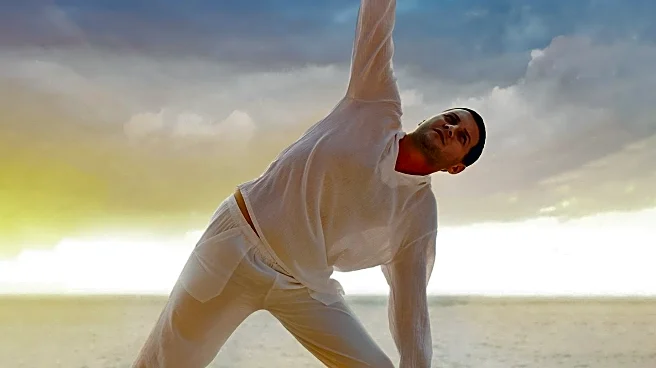What's Happening?
A recent study published in BMJ Evidence-Based Medicine has identified specific exercises that are particularly effective in combating insomnia. The research analyzed data from 22 randomized controlled trials, focusing on various interventions for insomnia patients. Among the exercise-based interventions, yoga, tai chi, walking, and jogging were found to offer significant benefits. Yoga was noted for increasing total sleep time, while tai chi improved sleep quality with effects lasting up to two years. Walking and jogging helped reduce daytime fatigue and grogginess. The study emphasizes the accessibility and low cost of these exercises, making them viable options for those struggling with insomnia.
Why It's Important?
Insomnia affects millions of Americans, leading to issues such as fatigue, difficulty concentrating, and increased risk of depression and heart disease. The study's findings offer practical solutions that can be easily integrated into daily routines, potentially improving quality of life for those affected. By highlighting exercises with low barriers to entry, the research supports the notion that 'exercise is medicine,' providing a non-pharmacological approach to managing insomnia. This could lead to broader adoption of these exercises in public health strategies, reducing reliance on medication and promoting overall wellness.
What's Next?
The study suggests that individuals should choose exercises that fit their lifestyle and preferences, potentially leading to personalized exercise regimens for insomnia relief. Healthcare providers may begin recommending these specific exercises as part of treatment plans for insomnia patients. Further research could explore the mechanisms behind the effectiveness of these exercises, potentially uncovering new insights into sleep health. As awareness grows, community programs and fitness centers might offer specialized classes focusing on yoga and tai chi for sleep improvement.








